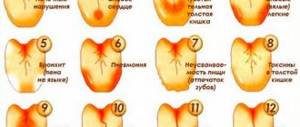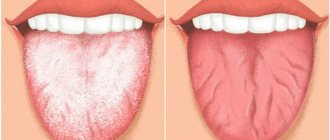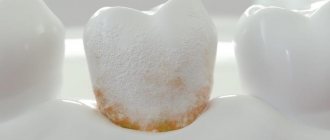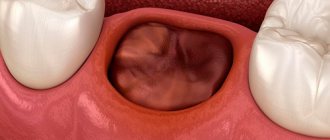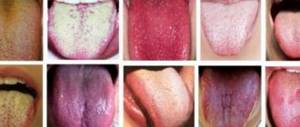The oral cavity is the most important mechanism of the human body. Diseases associated with it become extremely uncomfortable for a person. Minor changes in the mouth: the appearance of an unpleasant odor, a coating on the tongue - can signal poor hygiene and portend serious violations, including pathologies of internal organs. A situation like this requires a serious attitude. If it occurs, it is recommended to immediately consult a doctor for an accurate diagnosis of the disease.
White coating and mucus on the tongue - what could be the problem and how to solve it
When saliva becomes too viscous and its consistency begins to resemble mucus, there is reason to think about the state of your health. This symptom may indicate problems in the gastrointestinal tract, a fungal infection, or a disease of the oral mucosa. To prescribe the necessary treatment, you first need to diagnose the problem and identify the cause of the change in the composition of saliva. From today's article you will learn about why suspicious mucus appears on the tongue, what a dense white coating may indicate, and what to do to get rid of the problem.
Diagnosis of the problem
As mentioned above, a white or yellow tongue most often indicates problems with digestion. However, first it is better to visit a dentist so that he can rule out possible oral diseases that provoke the appearance of similar symptoms. If the doctor does not find other signs indicating dental disease, the patient will be referred to a gastroenterologist, virologist or endocrinologist.
If you find a problem, you need to contact a specialist
As part of the diagnosis, an ultrasound examination of organs located in the abdominal cavity, x-rays of internal organs, gastroduodenoscopy, urine, blood and stool tests can be performed.
General information
Salivary fluid is approximately 95% water, while the remainder of the composition is a complex that includes enzymes, protein, acidic salt residues and other trace elements. An important function here is performed by the enzymes amylase and maltose, which help break down food particles after they enter the digestive system. The enzyme lysozyme helps maintain the natural balance of microflora, but mucin, which, by the way, is responsible for the foamy consistency of saliva, completely covers the food bolus and promotes its unhindered digestion1.
Why does mucus appear on the tongue?
As a result, food passes through the esophagus without problems and enters the stomach, where the main process of digesting food and breaking it down into small particles occurs. Obviously, the degree of thickness of the salivary fluid determines how correctly the digestion process proceeds.
Why does viscous saliva appear?
Saliva sometimes becomes similar to mucus and turns into a more foamy and thick liquid, signaling certain malfunctions in the functioning of internal organs and systems. As a rule, this symptom is accompanied by other unhealthy manifestations, which help the doctor make an accurate diagnosis. Among the most common pathological causes of thickening of saliva are the following conditions:
- development of a fungal infection (for example, candidal stomatitis): the patient may also feel a metallic taste in the mouth, feel a lump in the throat for no apparent reason, suffer from a severe burning sensation in the soft tissues of the oral cavity. The factor that triggered the development of the disease may be long-term use of antibiotics, hormonal imbalance or close contact with a carrier of the infection,
- xerostomia: the mouth feels dry because saliva production is not as intense as it should be. In this case, the surface of the organ becomes denser, a characteristic burning sensation and foul odor appear, and dysfunction of the taste buds is noted. Sometimes patients complain of a sore throat and constant sore throat,
- Infectious throat diseases: these include tonsillitis and tonsillitis, in which acute pain occurs in the tonsil area, making it painful for a person to swallow. Purulent ulcers appear on the surface of the mucous membrane, and the patient experiences a general deterioration in condition, fever and constant fatigue. Saliva becomes more foamy, which is associated with dysfunction of the salivary glands,
- Oral pathologies: periodontal disease or periodontitis can provoke a change in the consistency of salivary fluid. As a result of the structural destruction of gum tissue and the development of inflammatory processes, a decrease in saliva synthesis occurs. The secreted liquid becomes white and becomes more viscous as it mixes with particles of epithelial tissue,
Periodontitis or periodontal disease can cause pathology - sinusitis in chronic form: the disease affects the paranasal sinuses and causes copious secretion of saliva with increased viscosity. In this case, a white coating forms on the tongue, which gradually leads to the appearance of a characteristic odor from the mouth. The nasopharynx also swells, there is a noticeable thickening of the salivary fluid,
- pathologies of the gastrointestinal tract: some diseases are characterized by an increase in the intensity of gastric juice secretion, which, rising through the esophagus, enters the oral cavity. At the same time, increased production of saliva begins to neutralize acids,
“I once noticed that in the morning the saliva became too foamy and thick. After some time, I began to notice that my breath smelled unpleasant. Then a white thick coating appeared. I cleaned it off with a brush, but after a while everything came back. As a result, I went to the dentist, although I thought it was some kind of stomach problem, I just wanted to rule out dental diseases. As a result, it turned out that I had stomatitis. I was cured, and this infection no longer bothered me.”
Inna1988, Kaliningrad, from correspondence on the woman.ru forum
- problems associated with the endocrine system: hormonal disorders can occur under the influence of factors such as puberty, gestation, menopause or, for example, diabetes. In these cases, there is often obvious thickening of the saliva,
- allergies: a change in the consistency of saliva often becomes a sign of an allergic reaction to some provoking factor, for example, to an allergen product or taking certain medications.
Mucus on the tongue can indicate the presence of infectious diseases and their exacerbation. Such pathologies include hepatitis, typhoid fever, and dysentery. Therefore, if suspicious symptoms appear, you should immediately see a doctor and undergo the necessary diagnostics.
Signs to see a doctor immediately
Based on the above, the criteria for immediately seeking medical help are determined:
- persistent bad breath;
- the presence of a yellow or white coating on the tongue, which cannot be removed by standard means;
- unpleasant sensations in the mouth (dryness, aftertastes);
- the presence of accompanying symptoms (heaviness in the stomach, nausea, heartburn).
You should not be guided by the listed criteria; the slightest suspicion of your own is important. The sooner you seek help, the greater the chances of preventing the development of the disease and saving time and money. Delay and improper self-treatment will only worsen the situation and lead to irreversible loss of health.
Whitish coating - what could it mean?
The appearance of a whitish coating on the root of the tongue in the morning is a completely natural and normal phenomenon. However, if discharge appears again immediately after cleansing, there is reason to think about your health. In both an adult and a child, this symptom may be a sign of the development or exacerbation of one of many different diseases, and therefore, to determine the exact cause of the problem, the doctor takes into account various characteristics of the discharge:
- thickness and density - a thin, but dense plaque indicates the initial stage of the development of the disease, often occurring against the background of ARVI. A large layer is evidence of chronic pathology or active spread of infection,
- color - can vary from white to yellow, gray and even black. The darker the shade, the more serious the underlying cause of plaque may be,
- consistency – can be dry or greasy, moist or curdled,
- place and nature of localization: discharge can cover the entire tongue or be concentrated in the form of spots in its individual areas.
A slight coating on the tongue is normal.
Sometimes the tongue may change color after drinking tea, coffee or certain foods, such as blueberries, beets, confectionery products with dyes or dairy products. To remove food debris, just rinse your mouth thoroughly.
Why is white-yellow plaque dangerous?
The appearance of yellow mucus on the tongue directly signals certain disturbances in the functioning of the liver and gall bladder. The true cause of the problem may lie in cholecystitis, biliary dyskinesia or bile stagnation. The latter requires immediate treatment, as otherwise stones may form. Often, viral hepatitis is to blame - in this case, patients often talk about bitterness in the mouth, experience regular attacks of nausea and vomiting.
This is what a yellow coating on the tongue looks like
How to remove these symptoms
So, how to get rid of plaque on your tongue and what to do about the smell? The essence of treatment comes down to eliminating the true cause of the problem. If poor hygiene is to blame, it is enough to visit the dentist for professional cleaning of plaque and dental deposits. In the future, you should take care of your oral health, regularly brush your teeth and undergo preventive examinations. But what if everything is not so simple, and the cause of such annoying manifestations is pathological conditions. In this case, the treatment method will be selected taking into account the specific disease:
- dental problems: a specialist will heal carious cavities, and if plaque and odor appear from a tongue disease, appropriate treatment will be prescribed using antiseptic, antifungal, anti-inflammatory drugs or antibiotics,
- systemic pathologies: first you will have to undergo examination by specialized specialists. Only after the diagnosis has been confirmed, the doctor will be able to prescribe the necessary therapy, during which the symptoms will gradually disappear by themselves,
- bad habits: when the cause of the problem is an addiction to tobacco smoke or alcohol, the only way out is to give up bad habits or at least minimize them.
You can get rid of the unpleasant odor using pharmaceutical products.
During treatment, you can remove discharge with a regular toothbrush, but it is better to consult a doctor about this. If the tissues are inflamed, such cleaning may be contraindicated. But you can get rid of the unpleasant odor using pharmaceutical rinses or decoctions of medicinal herbs - St. John's wort, chamomile, nettle, sage or mint. Remember: this is only a temporary measure to muffle obvious symptoms that cause some discomfort in everyday life. However, hiding the signs of a problem is not the same as solving it.
Diagnosis and symptomatic treatment
We have dealt with the possible reasons for the formation of mucus on the tongue, and now it’s time to talk about symptomatic treatment. Obviously, to eliminate the problem it is necessary to determine its root cause and work specifically with it. But during diagnostic procedures and treatment, you can try to minimize the manifestations of the annoying symptom.
Rinse
Pharmaceutical products in the form of solutions for rinsing the mouth have an antiseptic effect. Help stop inflammation and promote tissue restoration of the mucous membrane. However, you can start using such drugs only with the permission of your doctor. In some cases, decoctions of medicinal herbs, which contain exclusively natural ingredients, “work better.”
Rinsing is prescribed by the attending physician
Moistening the throat
In order to restore the microflora of the oral cavity and larynx, so-called salivary fluid substitutes are used. These products are available in the form of sprays or gels; you need to treat the oral cavity with them every morning. Some of the products presented on pharmacy shelves contain antimicrobial active ingredients, which help to rapidly reduce the number of harmful microorganisms in the oral cavity.
Help with expectoration
In some cases, specialists prescribe special medications that stimulate the process of production and liquefaction of sputum. Such mucolytics can only be prescribed by a doctor after a thorough examination and an accurate diagnosis.
Cleaning your tongue correctly
During daily brushing of teeth, many people forget to pay due attention to the tongue, but it needs equally thorough and regular cleansing of bacteria and food debris. For this purpose, you can use the rear ribbed surface of the head of a toothbrush, designed specifically for cleaning the tongue, as well as special scrapers, which can be bought today at a pharmacy or online. The technique for carrying out the procedure is as follows:
- After brushing your teeth, rinse the bristles and begin treating the surface of your tongue. Using sweeping movements, starting from the base, we gradually move towards the tip, removing accumulated plaque. This must be done carefully, without pressing too hard on the sensitive epithelium,
- first we clean one side of the organ, then move on to the second,
- We brush the brush across a few more times, if necessary, add a small amount of toothpaste, after which we re-process the entire surface of the tongue, but now from the tip to the base,
- Rinse your mouth thoroughly with water and spit out the remaining paste.
Regular brushing of your teeth and tongue will help avoid problems.
It is very important to monitor the health of your tongue and if any suspicious abnormalities appear in its condition, you should immediately contact a specialist. You should not ignore a symptom, even if it does not cause you much discomfort. After all, this can be a direct signal of health problems, and the sooner you find out the cause of the problem, the easier and faster you can get rid of it.
- Banchenko G.V., Maksimovsky Yu.M., Grinin V.M.: Language “mirror of the body”, 2000.
Recommendations for health improvement
The cause of most health problems is reduced immunity. To strengthen and maintain it, procedures for hardening the body will be useful, which are recommended to begin in childhood. In addition, experts advise taking multivitamin complexes from time to time, enriching the diet with fresh fruits and vegetables, and not forgetting the importance of physical activity. You don’t have to buy a gym membership and torture yourself with daily workouts. It is enough to walk every day in the fresh air, visit the pool once a week or, for example, ride a bike. Taking care of your health is the best prevention of any disease.
- Banchenko, G, V. Language is the “mirror” of the body: wedge, a guide for doctors, 2000.


